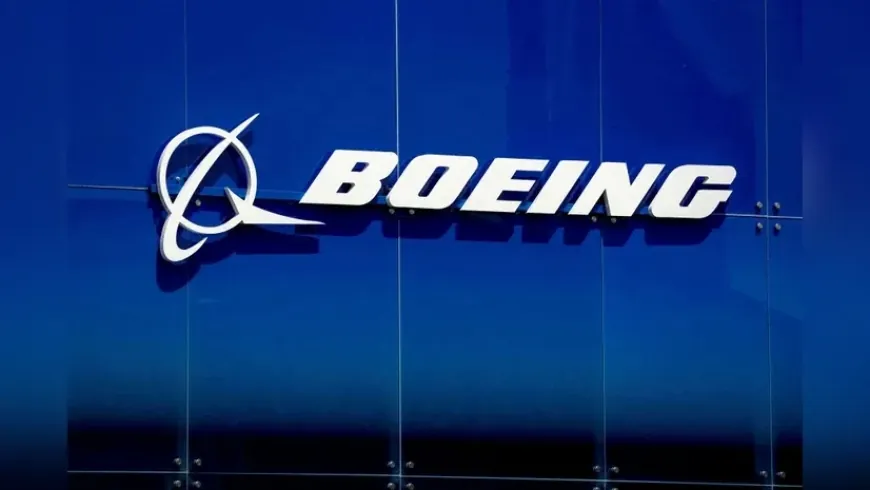Boeing Negotiating With China on Possible 500-Aircraft Deal
Boeing is in talks with China over 500 aircraft purchases, discussions closely tied to ongoing U.S.-China trade negotiations.

Boeing Co. is in discussions with Chinese officials over what could be one of the largest single aircraft deals in commercial aviation history, with reports suggesting an order of as many as 500 planes. The negotiations, first reported by Bloomberg, come as Washington and Beijing attempt to revive trade cooperation after years of strained relations.
Boeing Could Secure 500-Jet Order From China
According to industry officials familiar with the talks, the sale could involve a mix of Boeing’s 737 MAX narrowbody aircraft and 787 Dreamliner widebodies. Though the final details have not been agreed upon, early estimates suggest a total order value of more than $50 billion at list prices.
-
Estimated volume: up to 500 aircraft.
-
Likely models: 737 MAX for domestic routes, 787 Dreamliner for international services.
-
Potential value: $50 billion+ before industry-standard discounts.
Even by conservative calculations, the transaction would represent a massive boost to Boeing’s commercial backlog, which has been strained by cancellations and production delays in recent years.
Why China Remains Crucial for Boeing Sales
China has emerged as one of the most important markets in global aviation. Boeing forecasts that Chinese airlines will require more than 8,500 new planes by 2043, accounting for nearly one-fifth of global demand. That growth is fueled by a rapidly expanding middle class, increased business travel, and Beijing’s efforts to strengthen domestic connectivity through airport expansion projects.
The Civil Aviation Administration of China (CAAC) has also encouraged airlines to modernize their fleets with more fuel-efficient aircraft. This policy has favored Airbus in recent years, as Boeing’s reentry into the Chinese market was slowed by political tensions and safety issues surrounding the 737 MAX.
Competition in China Tilts Toward Airbus
While Boeing has struggled, Airbus has capitalized. Over the past three years, Chinese airlines have placed large-scale orders with the European manufacturer. In 2022, Chinese carriers committed to purchasing nearly 300 Airbus A320neo family aircraft. Further orders followed in 2023 and 2024, reinforcing Airbus’s dominance in the region.
Industry analysts note that Airbus has secured not only orders but also production commitments, with final assembly lines established in Tianjin, China. This localized approach has strengthened its political and commercial ties with Beijing. Boeing, by contrast, has seen its share of deliveries to Chinese airlines fall sharply since 2019.
Aircraft Deal Linked to Trade Negotiations
The aircraft negotiations are not just about supply and demand; they are deeply intertwined with U.S.–China trade relations. Aviation purchases have historically been used as bargaining chips in diplomatic discussions. The current talks are reportedly linked to wider trade negotiations between the Trump administration and Beijing.
Diplomatic sources say that large-scale aircraft purchases provide China with a way to balance trade accounts while also signaling goodwill. For the United States, securing orders for Boeing helps sustain tens of thousands of manufacturing jobs across states like Washington and South Carolina.
However, political observers caution that the deal remains fragile. Trade negotiations between the two countries have collapsed before, even after public optimism.
Airlines Asked to Submit Fleet Requirements
Bloomberg reported that Chinese officials have started consulting with domestic airlines on their fleet needs. China Southern, Air China, and China Eastern are expected to account for much of the order, though regional carriers could also benefit.
The exact mix of aircraft remains uncertain. Narrowbody jets such as the 737 MAX would support China’s fast-growing domestic routes, while widebody aircraft like the 787 Dreamliner could strengthen international connectivity.
Industry insiders say the final composition will depend on:
-
Pricing negotiations and discount structures.
-
Delivery schedules amid Boeing’s ongoing supply chain constraints.
-
Trade concessions made by Washington in other sectors.
Boeing Could Gain $50 Billion From Chinese Order
Boeing is negotiating what could be its largest single order in years, with a potential value of around $50 billion. The company is still recovering from setbacks including the 737 MAX grounding, supply chain delays, and weak demand for long-haul aircraft during the pandemic.
Boeing shares have already climbed more than 25% in 2025, helped by signs of renewed interest from Chinese airlines. A confirmed agreement for 500 aircraft would add substantial revenue and signal a return of one of Boeing’s most important markets.
Analysts say the deal could ease financial pressure but warn that fulfilling such a large order will depend on Boeing’s ability to maintain production schedules and avoid further quality-control problems.
Manufacturing Jobs and U.S. Economy
A deal of this scale would have direct implications for American manufacturing. Boeing employs more than 140,000 workers globally, with tens of thousands tied to its commercial aircraft programs in Washington state and South Carolina.
U.S. suppliers, including engine manufacturers, avionics firms, and composite material producers, would also benefit. Trade analysts say this is one reason why the U.S. government has historically supported Boeing’s international sales campaigns as part of its export promotion strategy.
Boeing Faces Competition From China’s COMAC
Boeing’s prospects in China are complicated by the growing presence of the state-owned Commercial Aircraft Corporation of China (COMAC). Its C919 narrowbody jet, which entered commercial service in 2023, is intended to give Beijing a homegrown alternative to foreign manufacturers.
So far, nearly all C919 orders have come from Chinese airlines, but the program signals China’s push to eventually reduce reliance on Boeing and Airbus. Analysts say a large Boeing deal could slow that transition in the short term, though COMAC’s long-term expansion remains a significant factor in the market.
Expert Views on the Talks
Aviation analysts and industry insiders say the potential order could reshape Boeing’s outlook but warn that political and operational hurdles remain.
-
Richard Aboulafia, AeroDynamic Advisory: “Chinese orders for Boeing have often coincided with political deals. They’re meaningful, but execution depends entirely on the state of U.S.–China relations.”
-
Sheila Kahyaoglu, Jefferies: “An order of this size would strengthen Boeing’s balance sheet, but production bottlenecks still limit how quickly the company can deliver.”
-
Li Xiaojun, aviation consultant in Beijing: “China’s demand is undeniable, but consistency matters. Airbus has been more reliable in recent years, and Boeing has to regain that trust.”
Challenges Facing the Potential Deal
While the reported negotiations mark progress, industry analysts caution that several factors could complicate or even derail the agreement:
-
Geopolitical tension: Any flare-up in U.S.–China trade disputes could put the talks on hold or lead to cancellations.
-
Manufacturing limits: Boeing’s factories are already under pressure from supply chain shortages and quality-control issues, raising doubts about whether it can fulfill such a large order on time.
-
European competition: Airbus remains well positioned in China and could lure airlines with earlier delivery slots and more stable production.
-
Domestic alternatives: Beijing continues to push COMAC’s C919 program, and part of China’s strategy may involve balancing foreign purchases with support for its homegrown jet.
If the negotiations succeed, Boeing would secure one of its largest-ever orders from China, marking a turnaround after years of limited sales in the region. For Beijing, the purchase would meet urgent fleet expansion needs and demonstrate continued engagement with Western manufacturers, even as COMAC develops its own aircraft.
Talks are still underway, and no timeline for a final agreement has been set. Until contracts are signed, the deal remains uncertain. But industry officials agree that its outcome will be closely watched across the aviation and trade sectors, given what it could mean for Boeing’s recovery and U.S.–China economic relations.
Also Read: Boeing Stock Crashes After Air India 787 Plane Crash Kills 200+































































